A dust collector is a crucial part of the workshop, but they take up a LOT of space! Here's why I switched to a wall mount dust collector in my small shop!
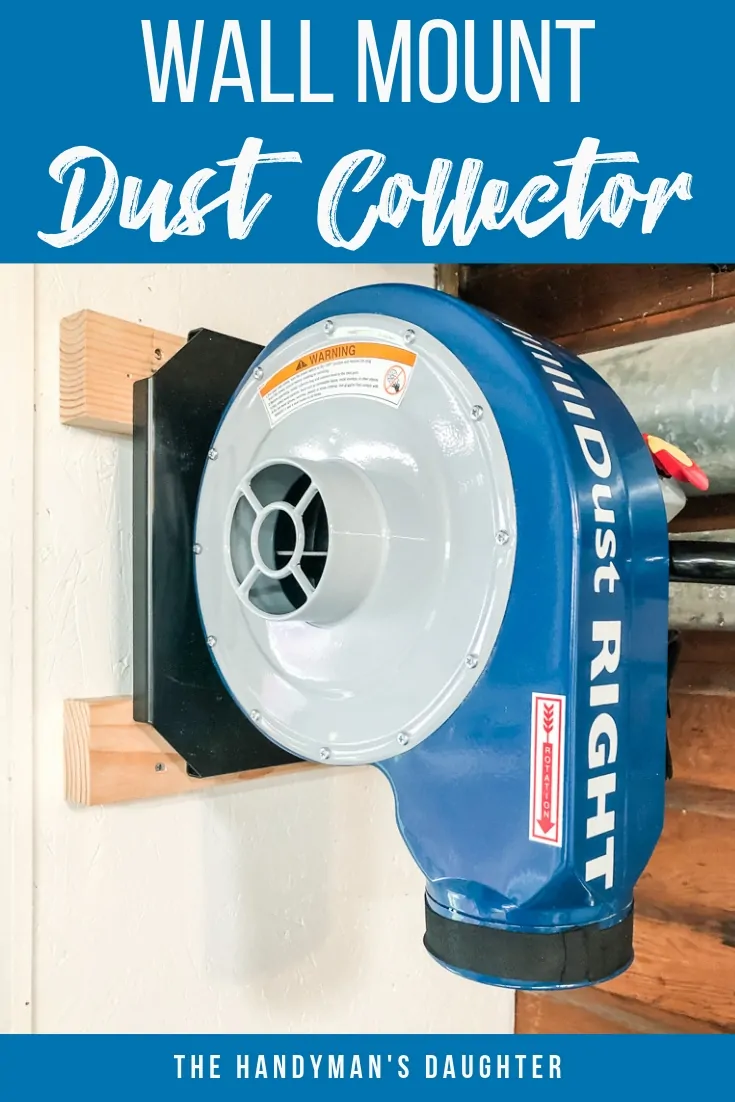
Dust collection is an important part of woodworking safety, but is often ignored. Today, I'm sharing why I switched to a wall mount dust collector to save valuable space in my small shop!
This post is sponsored by Rockler Woodworking and contains affiliate links for your convenience. Purchases made with these links may earn me a small commission at no additional cost to you.
A few years ago, I set up this monstrosity of a dust collector in the corner of my workshop. I combined the Harbor Freight 2 HP dust collector motor with a 0.5 micron canister filter. It seriously sounds like a jet engine taking off when I turn it on!
This dust collector was then attached to a cyclone separator, which traps the larger wood chips and particles before they get to the filter. THAT took up another big chunk of floor space behind my miter saw stand and forced it to stick out further into my work space than I would like!
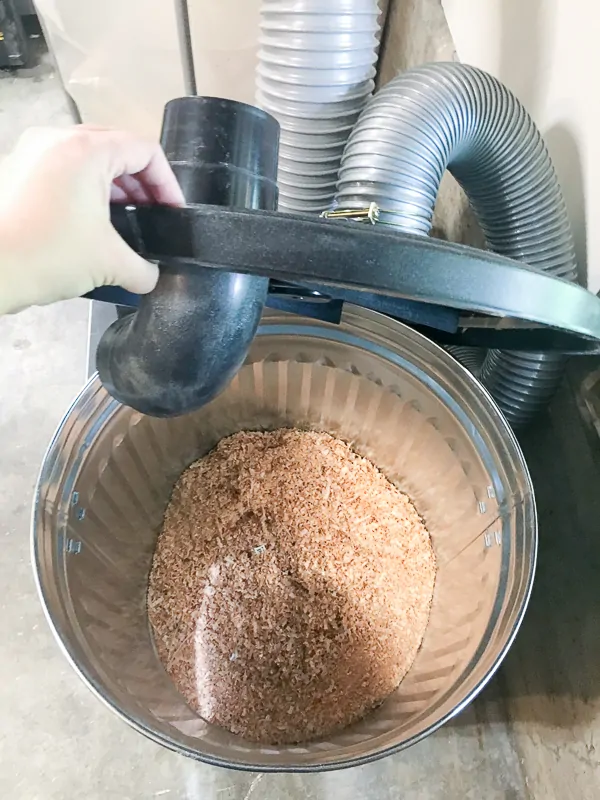
When it was all hooked up, it looked like a giant octopus was invading the workshop!
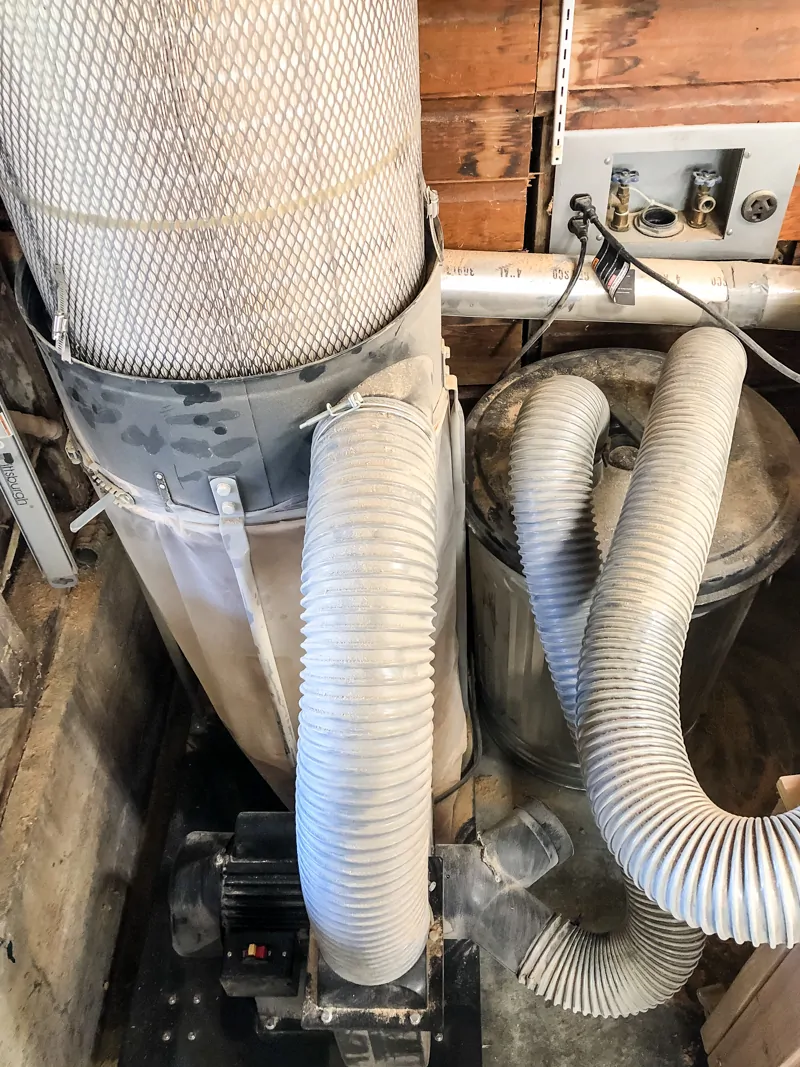
For the most part, I only used the dust collector with my miter saw dust hood because I never got around to running pipes to the other tools in the shop.
If I was planning to make a lot of cuts on the table saw, I would run the expandable dust hose all the way across the room and attach it to the 2 ½" port. But most of the time, I just tossed on a dust mask and dealt with the pile of sawdust on the floor later.
It was starting to feel like the dust collector wasn't earning its keep. A shop vac is a lot more portable and takes up WAY less space. I already had one permanently installed in my benchtop tool stand for the router table and drill press. So why bother with a dust collector at all?
Dust Collector vs Shop Vac
I'm not going to get all technical with talk about CFM and static pressure loss and all that math-y stuff. If you want to get all geeky about it, check out this article.
The difference between a dust collector vs shop vac is:
- Shop vac is high suction, low air flow (which is why you can suck a screw right off the floor with one).
- Dust collector is high air flow, low suction (which is why lighter sawdust will float down the hose, but it can't pick up metal or large pieces).
A shop vac is meant to keep surfaces clear of sawdust, not the air. Dust collectors move higher quantities of air, catching the finer dust particles in the filter. However, not all filters are the same!
Dust Collector Filter Choices
The standard filter on a dust collector usually isn't the greatest. Most have a rating of around 30 microns, which means all those fine particles you sucked up are spewing right back out into the air and into your lungs!
But a smaller micron number comes at a cost, both in terms of price and function. The tiny diameter of a 1 micron filter won't allow as much air flow as a 5 micron filter, especially when it gets clogged with dust.
Canister filters have more surface area than bags due to the tiny pleats inside. Just give the canister a quick beating and all that clogging dust will fall into the bag below. The canister filter I used on my Harbor Freight dust collector was rated down to half a micron!
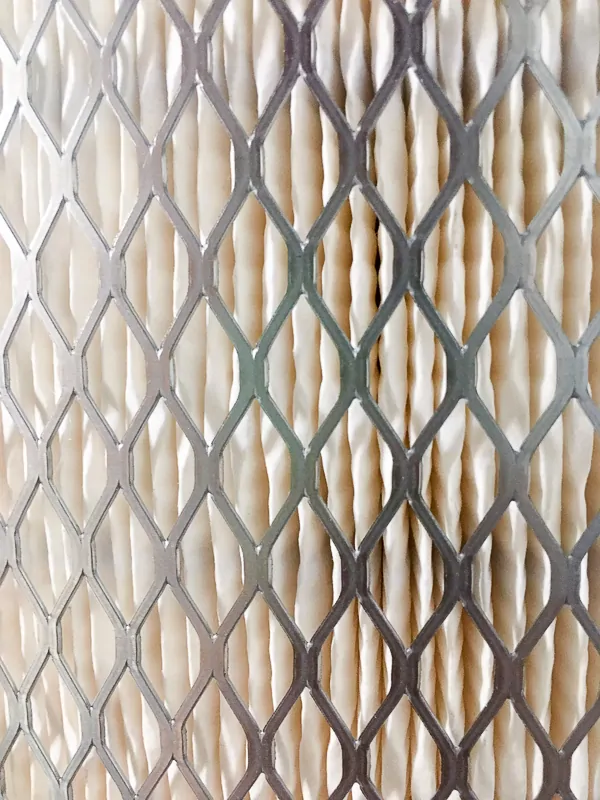
Get the Best of Both Worlds with a Wall Mount Dust Collector
So if the giant dust collector wasn't working out, but a shop vac wasn't enough, what other option is there? Rockler, my favorite woodworking store, has a solution: a wall mount dust collector!
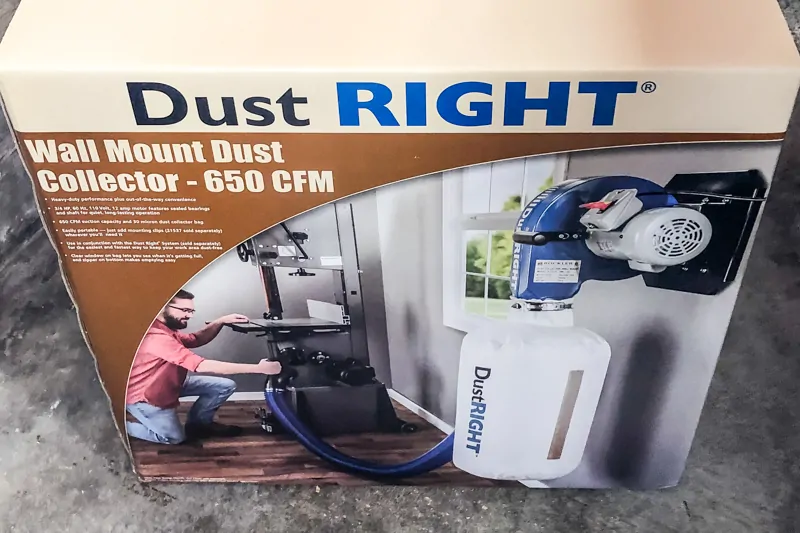
Instead of cluttering up the corner with a giant machine, the Dust Right dust collector hangs on the wall from a secure Z bracket.
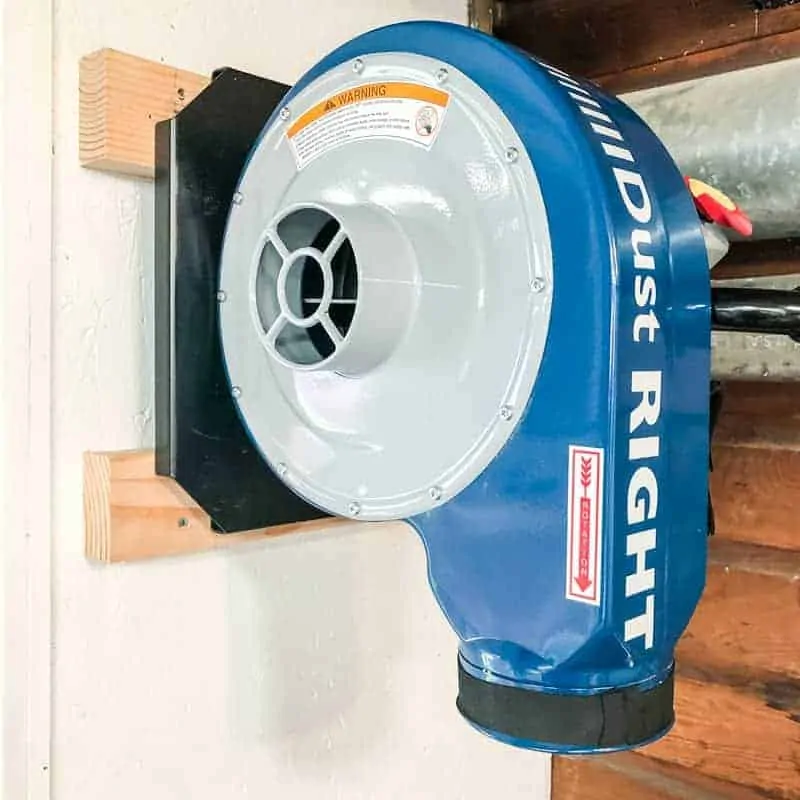
You can purchase additional Z brackets and move the entire thing around the workshop if you have a larger space. The padded handle makes it much easier to lift the heavy motor.
I opted for the upgraded 5 micron dust filter, rather than the standard 30 micron version that comes with the machine. It's made of heavy duty cloth (it kinda feels like a fleece blanket!) and has a little window so you can see when it's getting full.
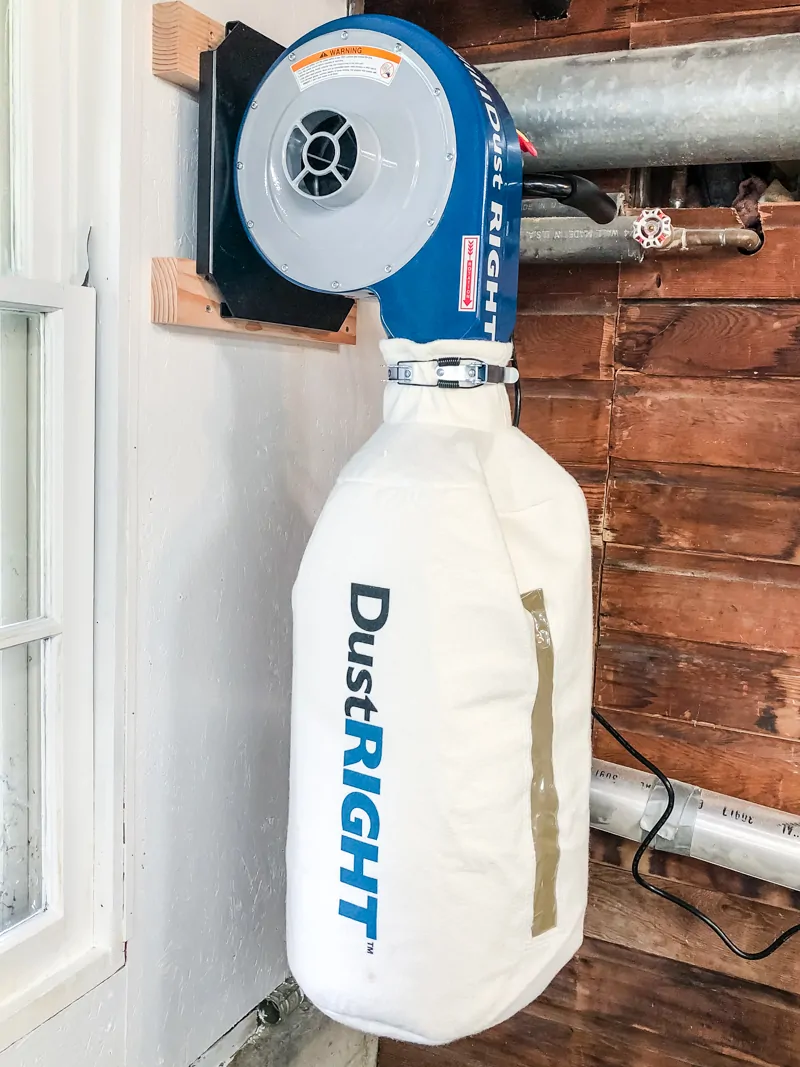
Rockler also makes a 1 micron canister filter with a built-in filter cleaner. Just turn the crank to clear the dust off the pleats! Since I always wear an RZ dust mask when I'm cutting or sanding, I decided that 5 microns would be sufficient. There's always sawdust that even a really powerful dust collector can miss, and using a mask is a must for the health of my lungs!
My Wall Mount Dust Collector Set Up
The wall mount dust collector allows me to have a much more streamlined set up. Instead of a maze of ducts that twist and turn, I have one fairly straight pipe from the intake valve to the trash can separator, and another that goes to the Y connector. The trash can fits under the wall mounted unit for an extra small footprint!
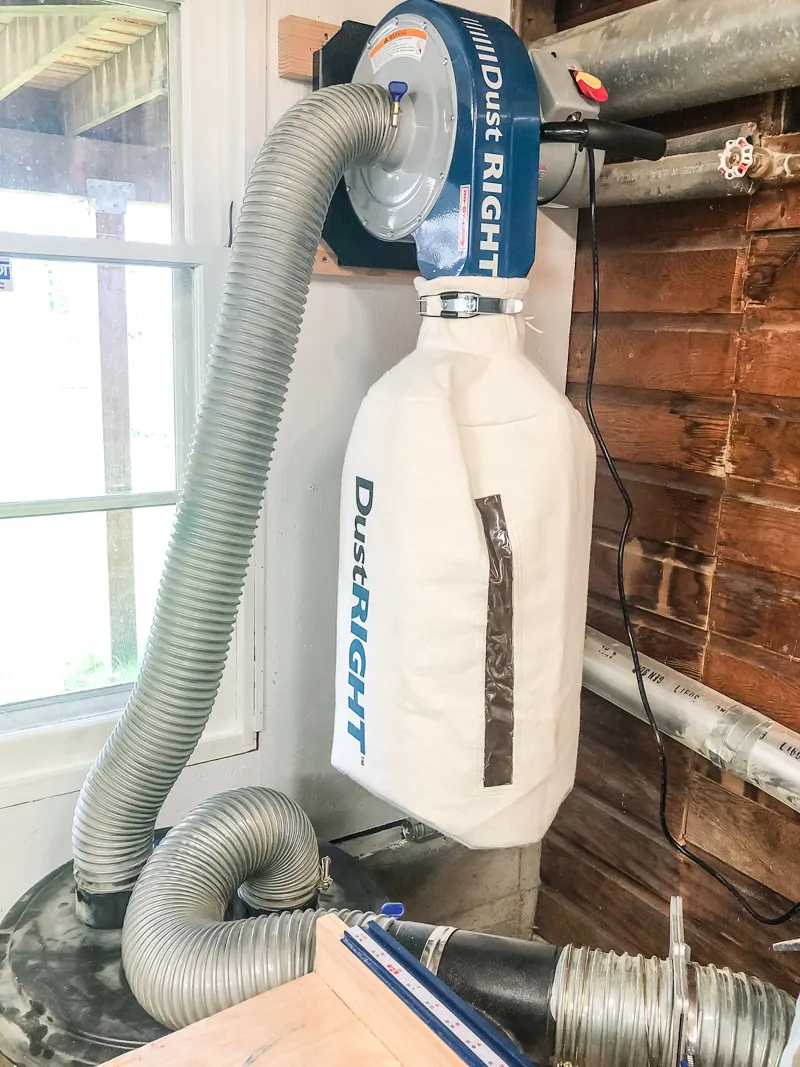
Since I was redoing all the hoses anyway, I finally installed a metal blast gate to block off the open end of the miter saw dust hood. The plastic blast gate would suck itself closed whenever the dust collector was turned on!
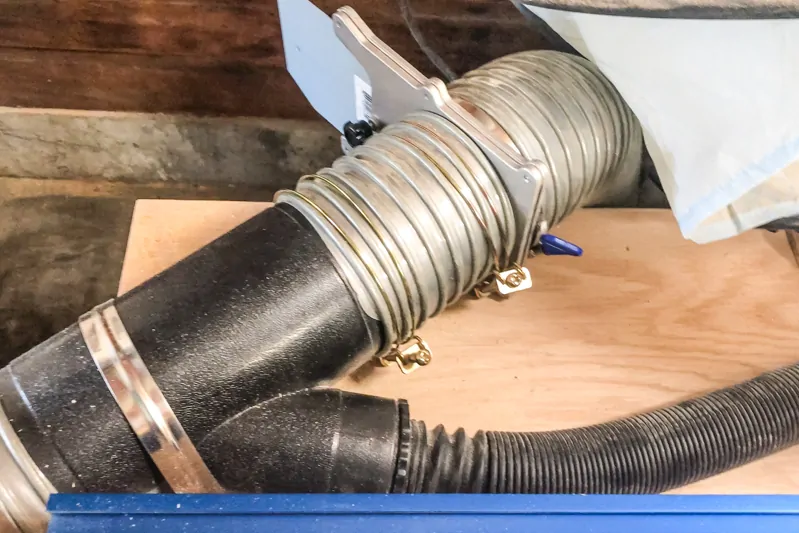
Now I can close off the 4" connection and just use the 2 ½" side for my smaller tools around the shop. My table saw has a 2 ½" port, so I can easily connect the expandable hose to the dust collector when I need it. The dust port on my DIY table saw stand makes it fast and easy to hook everything up!
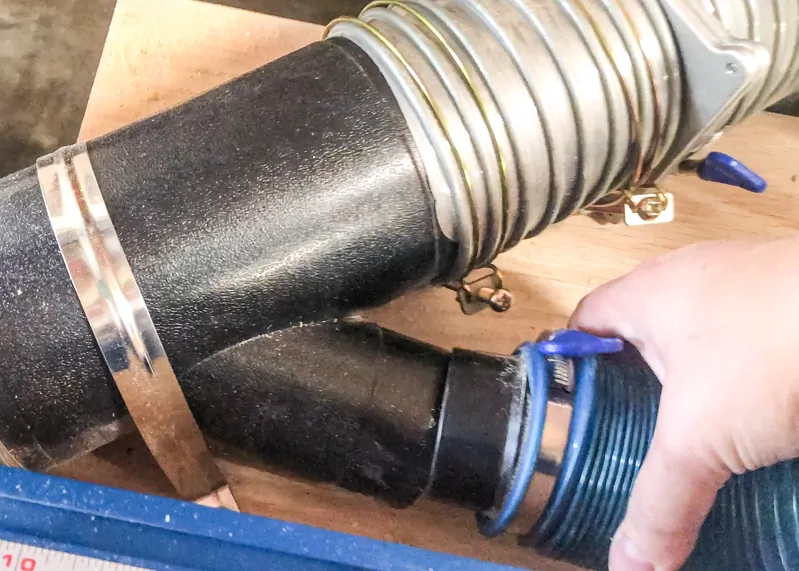
I can also easily switch the hose to my sanding station with the Dust Right cord and hose holder and small port hose kit! My shop is noticeably cleaner now that I'm more likely to use the dust collector for long sanding sessions.
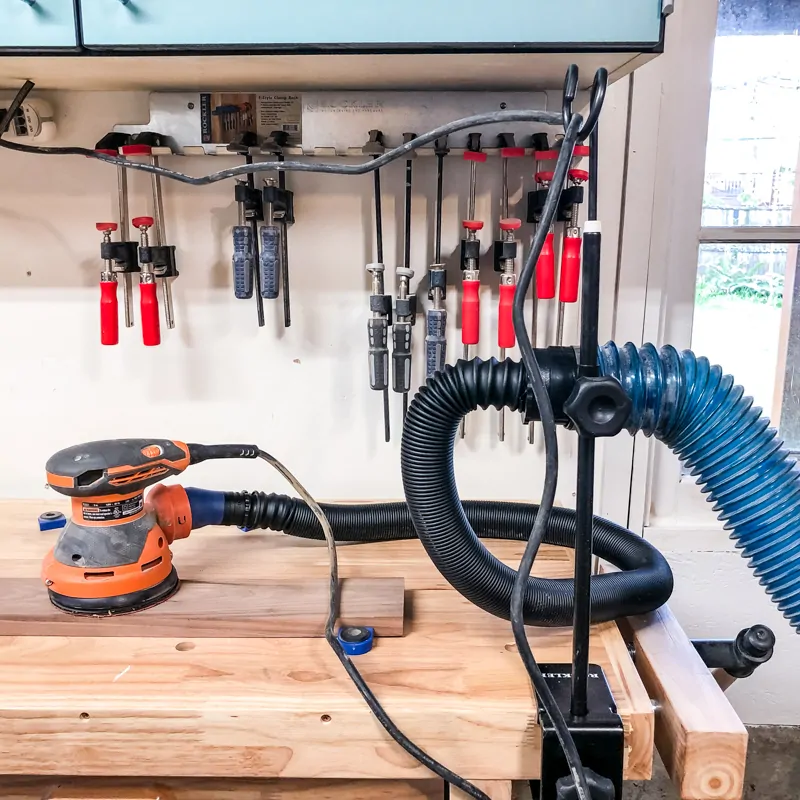
Not only did the Dust Right wall mount dust collector free up more floor space, but now I can push the miter saw stand a foot closer to the wall because the trash can isn't wedged behind it! I'm debating switching to the Bosch Axial-Glide miter saw just so I can push it all the way up against the wall . . .
Check out the video below for a quick tour of my entire dust collection set up!
Final Thoughts on the Dust Right Wall Mount Dust Collector
For my small workshop, a wall mount dust collector was the perfect choice! It takes up far less space in the corner while keeping a similar amount of suction power. I haven't noticed huge difference from my old dust collector, and I use it far more often now! My shop vac has been banished to the far corner of the shop where the dust collector hose can't reach.
If you have a large workshop with dedicated PVC ductwork for dust collection, or if you frequently use a thickness planer or a lathe that spits out tons of sawdust, you might want to opt for a model with more horsepower. But I'm much happier without the giant octopus in the corner! 🙂

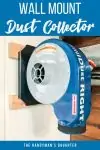
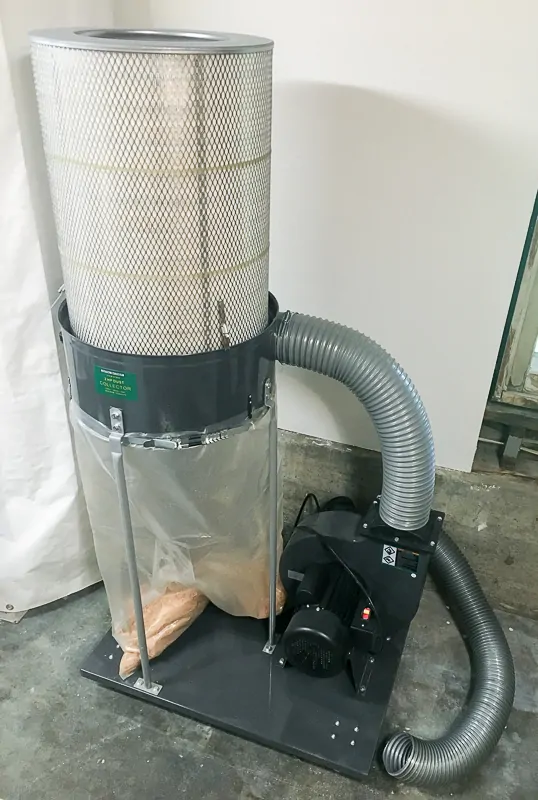
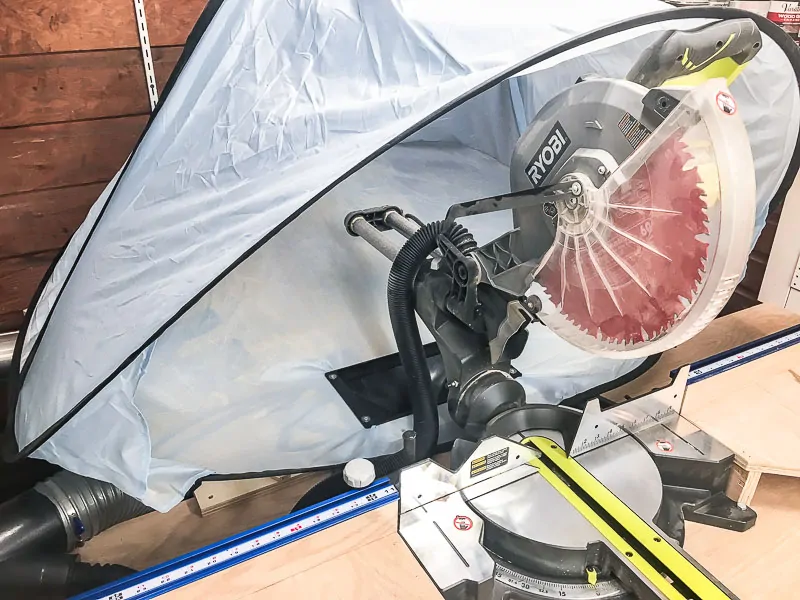
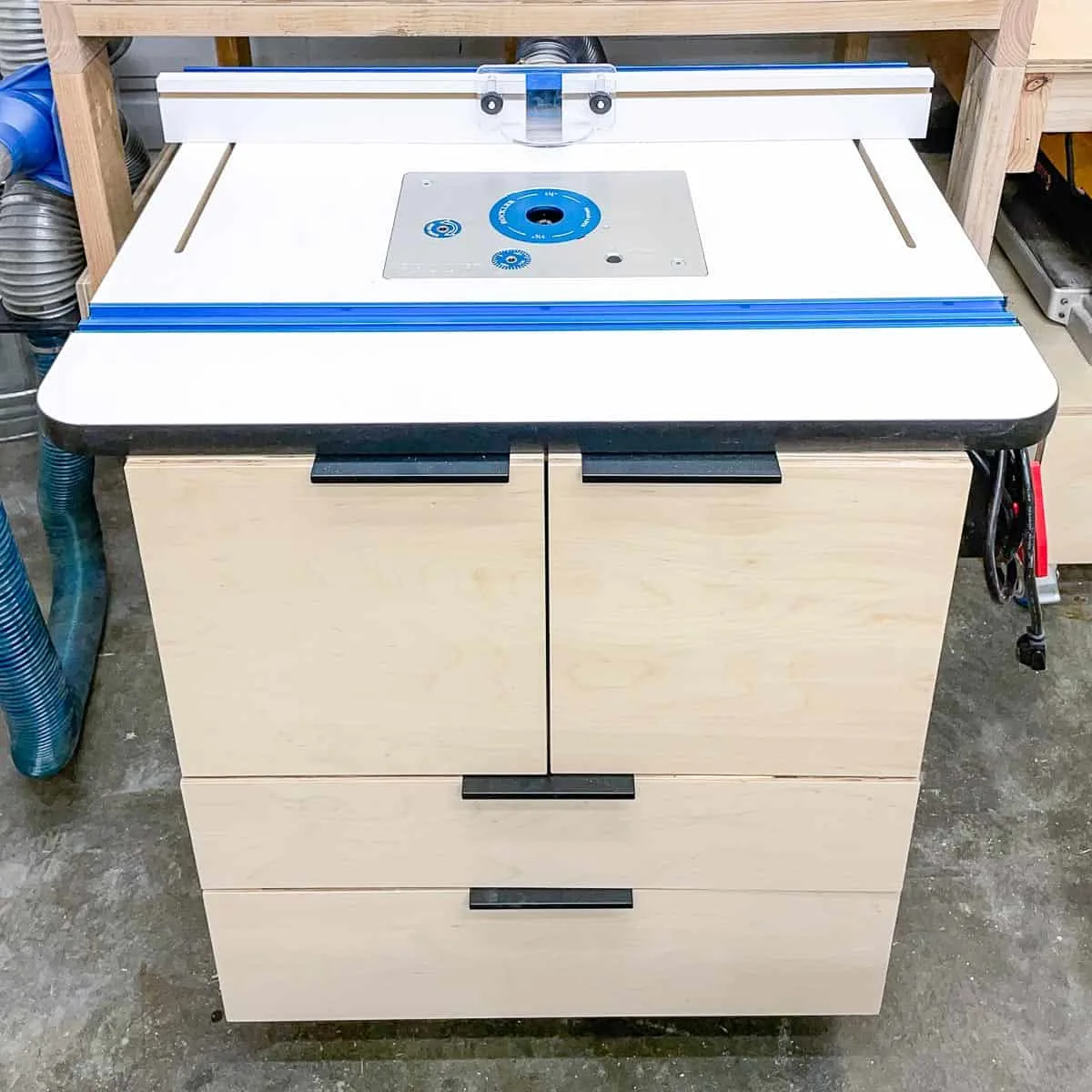
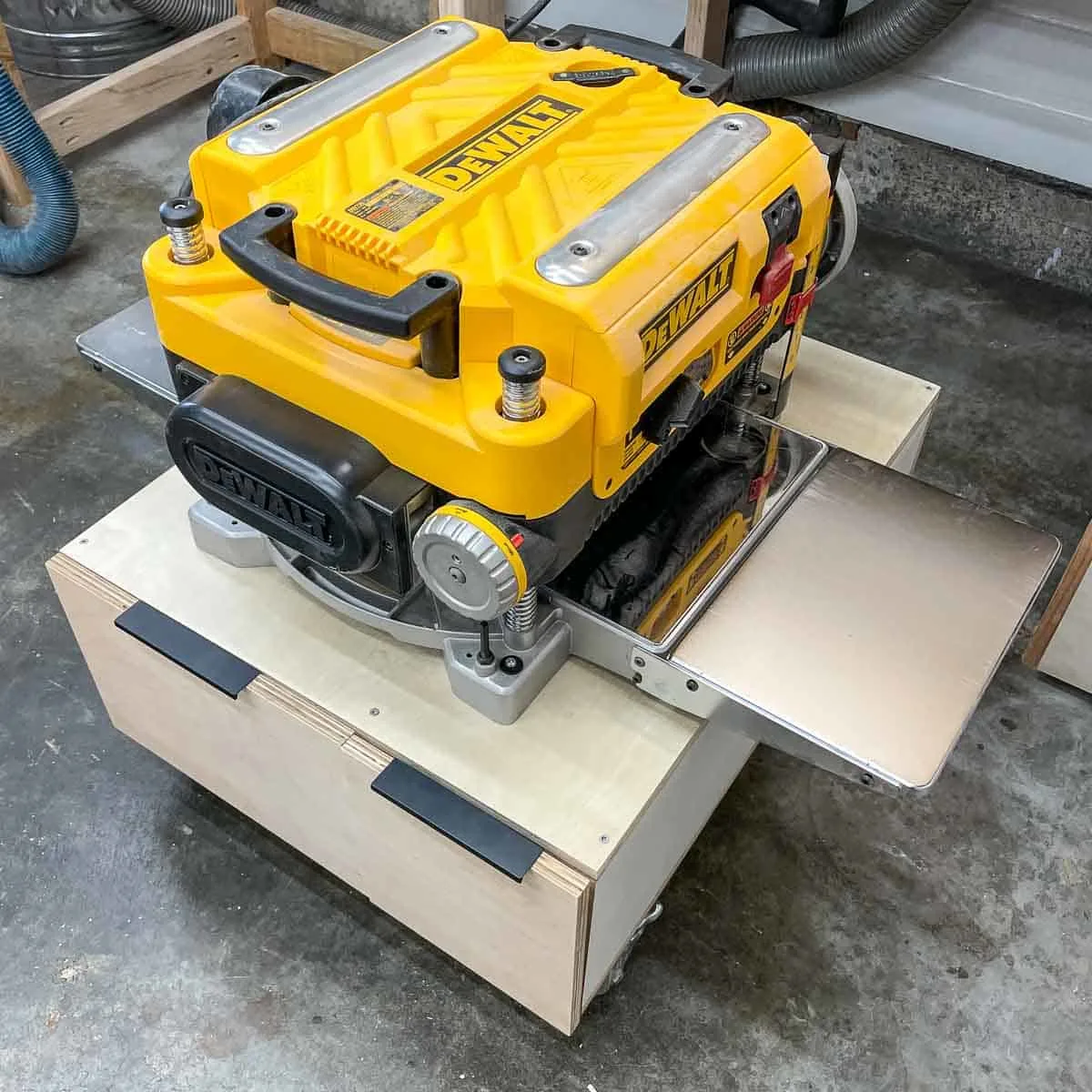
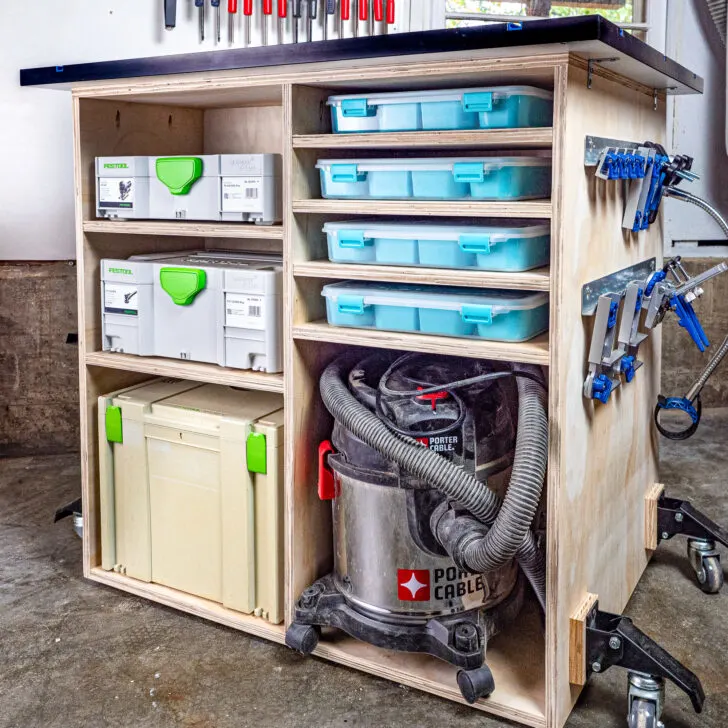
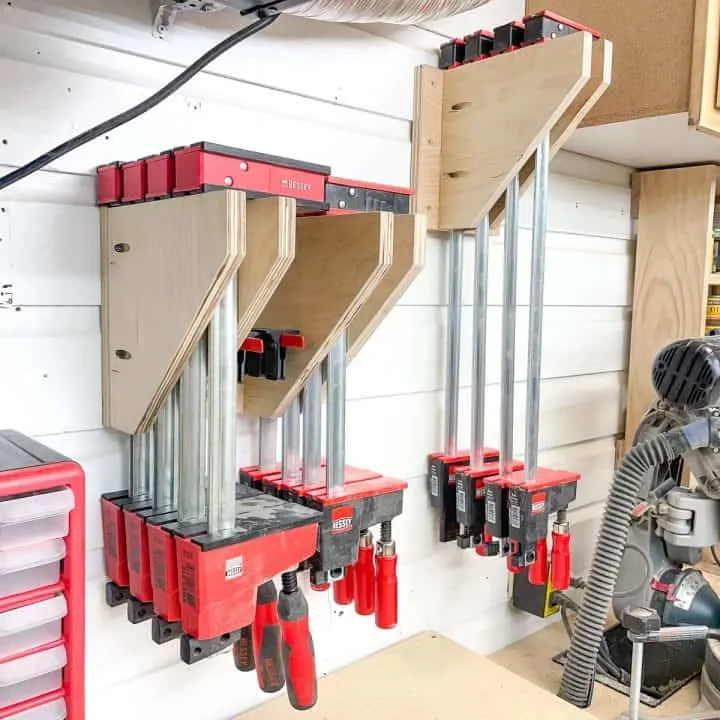


www.talkhelper.com
Thursday 11th of April 2019
Thank you for the wonderful article
That Sassy Life coach
Wednesday 10th of April 2019
That never even crossed my mind! Thanks for sharing :) xx
Toni | Girl, Just DIY
Wednesday 3rd of April 2019
Oh my gosh that said it is amazing Vineta! I remember when you built the old one which I thought was pretty cool but I can see how much use you're going to get out of this. I want something like that when my workshop grows up to be like yours 😁